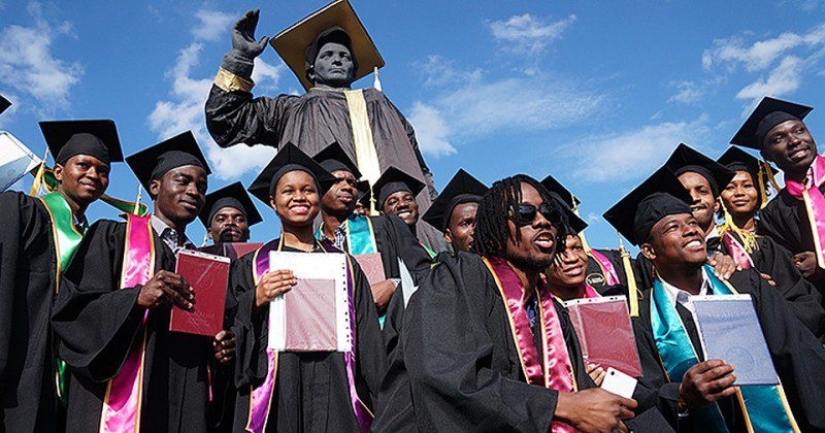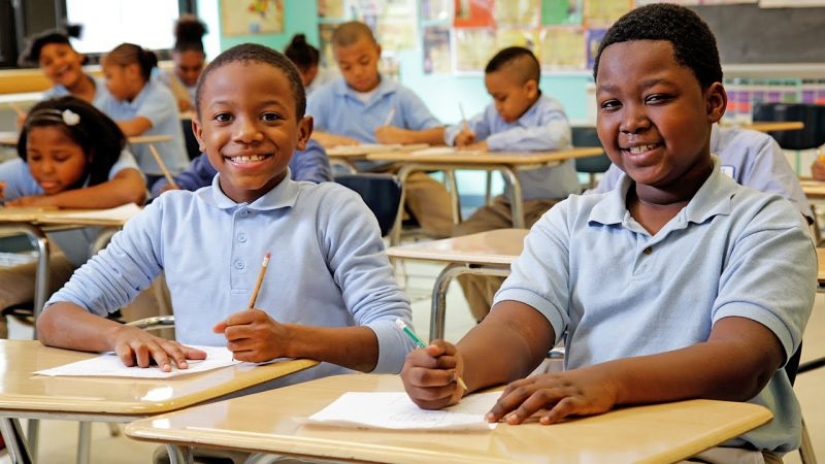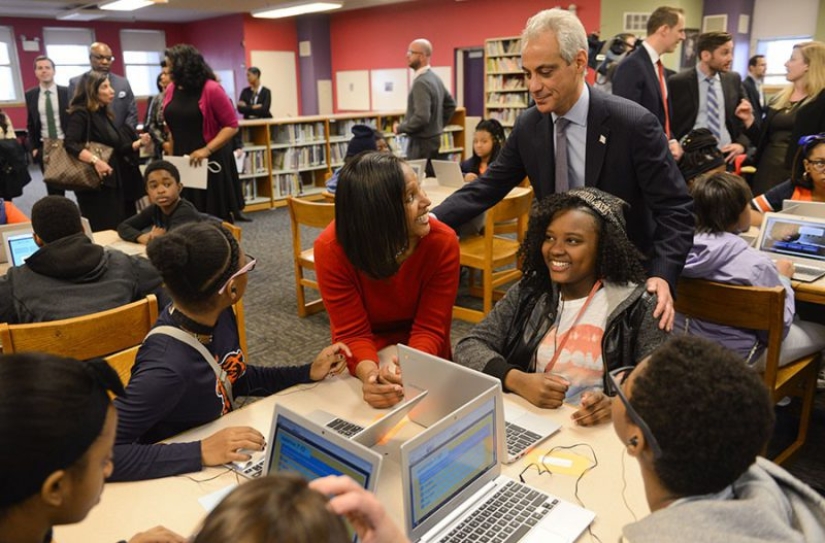Why do they allocate investments of 20 thousand dollars to elementary school students in Chicago
Categories: Children | Economy | North America | Society | World
By Pictolic https://pictolic.com/article/why-do-they-allocate-investments-of-20-thousand-dollars-to-elementary-school-students-in-chicago.htmlOne of the Chicago schools, where not the simplest children study, decided to take care of the financial literacy of its students. To do this, it was decided to use real money instead of lectures by financiers and not economic board games.
Now each class receives 20 thousand dollars (approximately 1,330,000 rubles), on which children learn to invest in securities.

Statistics show that half of US residents are unfamiliar with the basics of financial literacy. Ariel Community School, located in Chicago, Illinois, decided to fight the economic backwardness of its students with radical methods.

The school educates children from 5 to 15 years old and from the first grade they are taught economics, the basics of entrepreneurship and investing. These subjects are not optional, but mandatory, just like mathematics or English. In order not to explain economic wisdom on the fingers, at the beginning of the study, each class is allocated 20 thousand dollars as an investment portfolio.
Until the students move to the 6th grade, the finances are managed by the educational institution, and then capital management passes into children's hands. After the class is graduated, the assets are realized and 20 thousand dollars are transferred to the kids from the first class.

The director of the school, Lennett Coleman, claims that this approach to learning is effective, since the average return on the portfolio is 12-13 thousand dollars. The school keeps half of this amount for itself, and distributes the second part among graduates, of whom there are 20-25 people in each class. Children can manage the money themselves, for example, put it into a bank account. The program is not very profitable, but it performs its task perfectly and finances itself.
Ariel Community School is not quite ordinary. 90% of her students are African-Americans and 85% of all children from low-income families. With the help of the new investment literacy program, the school's management hopes to expand the future opportunities of children. It is known that this works, since a considerable percentage of school graduates continued their studies and became doctors, lawyers or successful entrepreneurs.

One of the graduates of the school, Miles Gage, believes that it is difficult for children from black families to break out of the vicious circle of poverty because at home they almost never hear conversations about money and its rational use. Gage received enough basic knowledge at school to then study to be an economist and start his own business.
Miles's startup, Rapunzl, a company engaged in simulating the behavior of securities portfolios, helps people, just like the Ariel Community School, get an idea of the stock market and invest without the risk of losing all their savings. Gainge claims that it was his native school that prompted him to devote his life to teaching people investment literacy.
Keywords: Shares | Investment | Program | Students | School
Post News ArticleRecent articles

It's high time to admit that this whole hipster idea has gone too far. The concept has become so popular that even restaurants have ...

There is a perception that people only use 10% of their brain potential. But the heroes of our review, apparently, found a way to ...
Related articles

In the late 80s and 90s, such formats of programs that were interesting not only for adults, but also for teenagers and young ...

"Life Lesson" is an unusual curriculum presented in Japanese schools. Middle school students grow fish for several months under the ...

Now you are young and full of energy, but after some 20-30 years you will begin to think "what to live on in old age". After all, ...

New Year's is a time to surprise and delight loved ones not only with gifts but also with a unique presentation of the holiday ...